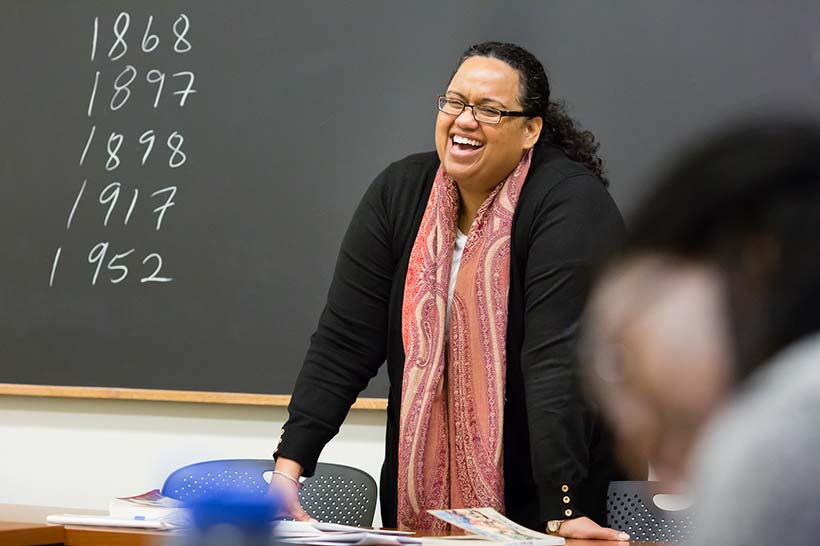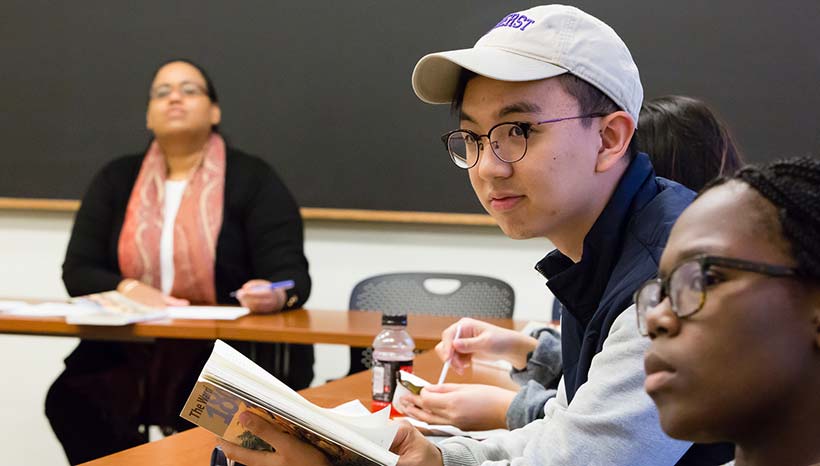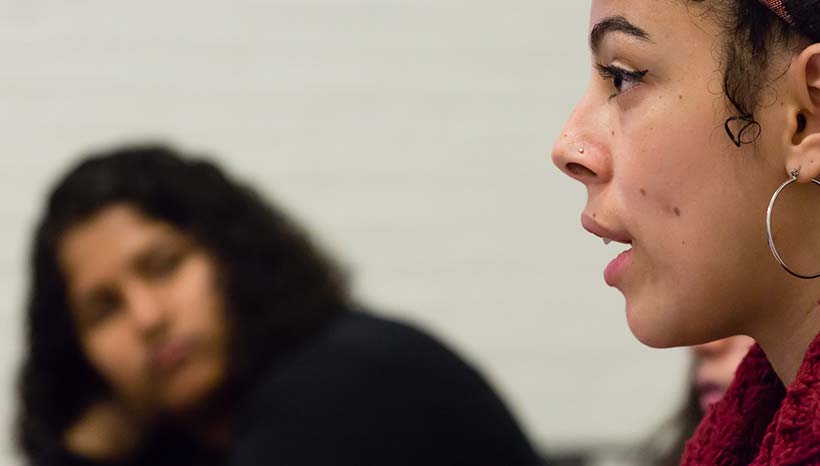
American Studies 371, Black Studies 371: “Race and Revolution in Cuban History”—Solsiree Del Moral, associate professor of American studies and black studies.
“Within the larger history of the Caribbean and Afro-Latinos, Cuba stands out for its long history of revolution and racial politics since the 19th century,” says Solsiree Del Moral, associate professor of American studies and black studies. “While students might have a vague understanding about the 1959 Cuban Revolution, few understand it to be part of that larger process of revolutionary and anti-colonial movements.”

Her new course, therefore, takes students all the way back to 1812, when a free black former military officer named José Antonio Aponte, inspired by the Haitian Revolution, led a rebellion to liberate Cuba from slavery and Spanish rule. The course proceeds through the La Escalera Rebellion of 1841–44; several wars against colonialism in the mid-to-late 1800s; and black veterans’ founding, in 1912, of the Partido Independiente de Color (Independent Party of People of Color). By spring semester’s end, students will explore the 1959 Revolution, which held racial equality as a central goal, as well as Cuba’s subsequent diaspora and the 1990s economic crisis.

However, “race and revolution is simply the topical focus,” Del Moral says. “The pedagogic goal is to practice critical reading, writing and speaking.” The professor’s brief lectures give historical context, but the course revolves around students’ close readings of history and historiography, in-class discussions and presentations and critical essays.